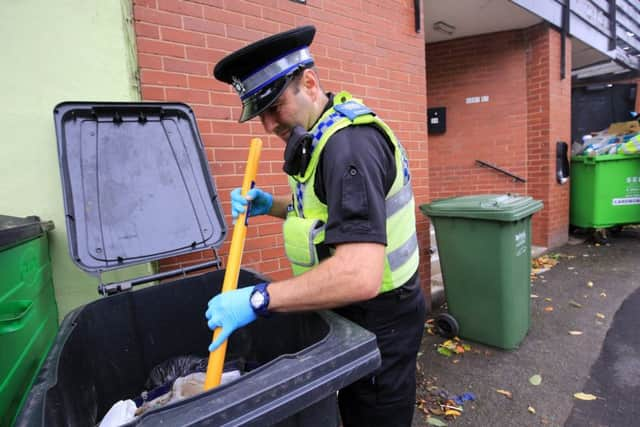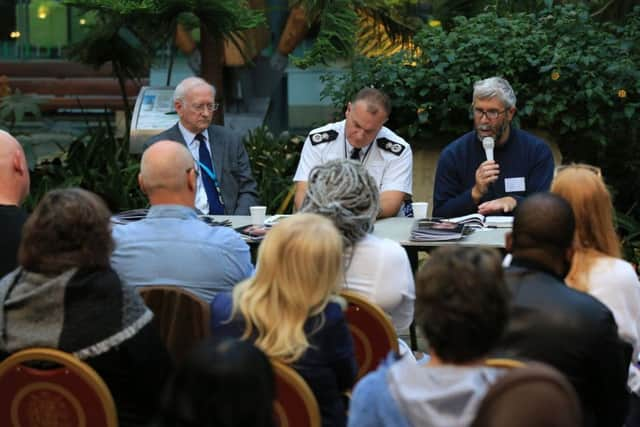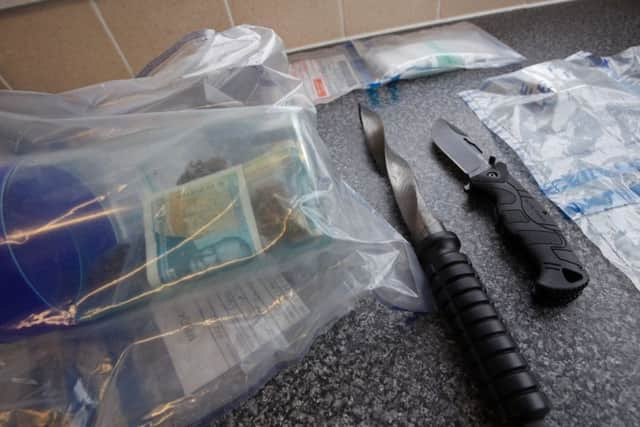Kaltum Rivers: To find answers to knife crime, listen to the young people of Sheffield
In fact, as Detective Superintendent Una Jennings told the council at a briefing, the level of knife crime here is in line with national trends, neither better nor worse.
That there’s a knife crime problem is not something you need to tell the community in which I live, Broomhall, an inner city area of considerable deprivation that exists cheek-by-jowl with far more wealthy areas.
Advertisement
Hide AdAdvertisement
Hide AdFar too often I, and other community members, have to sit with shocked mothers, grieving for the death or serious injury of their child.


Overwhelmingly it is young men and boys from some of the most deprived communities that are at risk. Very few incidents have involved passers-by or bystanders, the victims are the peers of the perpetrators.
At the briefing meeting the council’s CEO, John Mothersole, expressed concern about the risk of burdening and criminalising those communities.
But when I sat down to talk to young men who are at risk, they dismissed that concern. “We’re already stigmatised,” they said. “That’s why we’re in this position.”
Advertisement
Hide AdAdvertisement
Hide AdThey are burdened with deprivation, stereotyping and discrimination. They felt they’d been forced on to the streets, into a life of criminality, by the system in which they live.


I asked the young men what they thought should be done to stop the deaths, the injuries, the fear, and my heart wept at the answer.
For they told me they thought it was too late for them. But they were very concerned about their younger brothers and sisters, the next generation, and full of ideas of what could be done.
The young men identified the transition from primary to secondary school as the key point. That’s when they felt they were treated differently from their peers – expected to be a problem, looked at differently, treated differently. And, all too often, excluded from school, literally pushed out on to the streets.
Advertisement
Hide AdAdvertisement
Hide AdBut sometimes, they acknowledged, the problems had been stored up earlier. Families struggling with mental health issues and poverty had not received the help they needed.


And they felt they lacked links with other generations. They feel that the lives of their mums and dads were nothing like theirs, but also that many of their peers live in different worlds, even if just around the corner.
They pointed to the way they were stopped and searched regularly in the community in which they’d grown up, while the many incoming students, who live among them, are not.
I know how they felt. Two decades ago when I arrived as a refugee, settled into school and started to learn English, I realised that one of the teachers talked about some of us as “you lot”. I confronted her about it, and she responded: “Well you’ve clearly learnt English.”
Advertisement
Hide AdAdvertisement
Hide AdSheffield boasts some wonderful, grassroots-driven schemes to address the needs of these vulnerable children, including Unity Gym, De Hood, Big Brother Burngreave, Mums United and Reach Up just to name a few. What’s crucial is that they have grown from their communities, and listen closely to young advisors from within the current generation.
They are well equipped to bring these young people together – but they need the resources to do that. But we know from bitter past experiences that when resources are available, they are all too often not directed to where they are needed and best used.
Colonialism can be alive and well in 21st-century Britain, with outsiders coming into communities, vacuuming up the available cash and producing comfortable reports in bureaucrat-speak that fail entirely to address the needs of those they are supposed to be helping.
I’m a social science researcher, and I know that one of the rules of research is that participants should be able to recognise their own words, their own views, in reports. Too often that’s not the case. If you create actions from directions that they do recognise, you empower individuals and communities.
Advertisement
Hide AdAdvertisement
Hide AdIt’s important that we acknowledge the limitations of what police can, and should, be doing. As Det Supt Jennings said, they are the absolute last line of defence against knife crime, and by the time it gets to them many other agencies have failed.
There’s a reason why this is a national problem. Our nation is plagued by poverty, inequality, the disastrous effects of swingeing austerity on essential social services and discrimination.
But Sheffield is a special city, a different city. We can do much better than this, and doing that means listening to the young people who are the absolute experts on why their peers are suffering and dying. And acting on their recommendations.
Kaltum Rivers is a Green Party councillor in Sheffield.